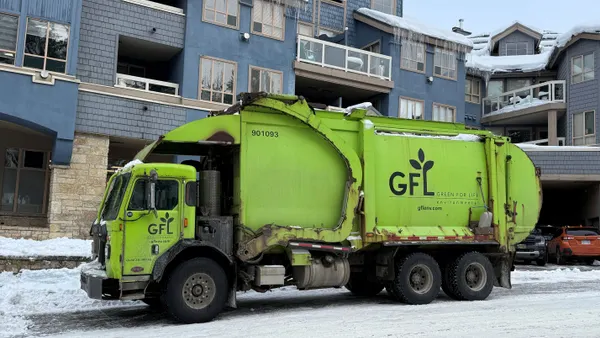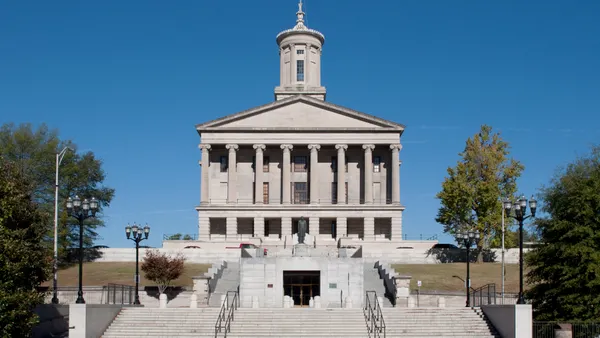Dive Brief:
- Advanced Disposal Services must provide $14.5 million of gas from its Emerald Park Landfill to the Milwaukee Metropolitan Sewerage District over the course of 25 years. These new terms are part of a revised contract after the district settled claims against the company for failing to provide enough gas in previous years.
- The gas is transported 19 miles to the Jones Island sewage treatment plant where it is burned in turbines to create electricity for the facility. Excess heat is used to produce fertilizer. While the district spent $86 million to build this system, Advanced Disposal has previously failed to deliver the minimum amount of gas required under the original contract.
- The district is also in talks with Waste Management to transport gas from another nearby landfill in Franklin, which would be blended with the gas from the Emerald Park Landfill. This new agreement is projected to save the district in $12.8 billion in fuel costs.
Dive Insight:
Landfill gas contains more than 50% methane, which has been receiving a lot of attention from the EPA lately. Landfills are the third-largest source of human-related methane emissions in the U.S. and recent studies have shown that the EPA may even be underestimating those figures. Much of this gas comes from the decomposition of food waste, but the EPA has set a goal of reducing food waste 50% by 2030, which would reduce landfill emissions but not eliminate them entirely.
While landfill disposal is at the bottom of the waste hierarchy it will likely remain prevalent as long as capacity is available and tipping fees remain low. Advanced methane recovery has become a popular way for companies to help improve sites' images as waste-to-energy providers and also capitalize on a valuable resource. Though as shown by the issues Advanced Disposal has had with providing significant quantities of the gas, the technology is still evolving.
One method, in which companies turn the methane into compressed natural gas (CNG), has taken off in recent years. Companies such as Waste Management, Republic Services, and Progressive Waste Solutions now fuel thousands of trucks in their fleets using this system.













